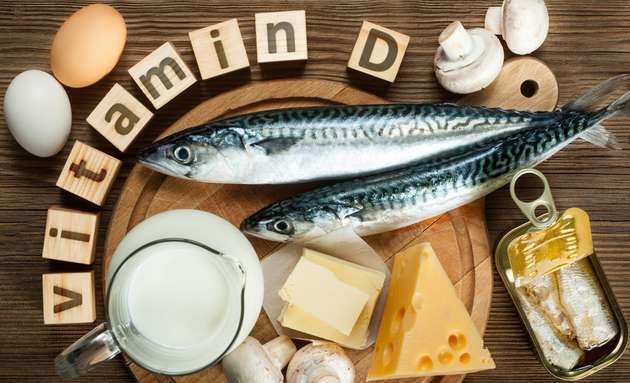The Link Between Strong Bones and Calcium and Vitamin D

Old age comes with health issues that impact the quality of life and the ability to live independently. Young kids and adolescents have growing bones which reach peak mass at about 25 years of age. This bone mass then remains relatively stable until 50-60 years of age, after which a decline begins, leading to conditions like Osteoporosis or Osteopenia.
Scientific research has contributed immensely to our understanding of the importance of Calcium and Vitamin D in order to maintain strong, resilient bones. Let’s understand how.
Calcium and Your Bone Health

Calcium is a mineral that helps make your bones healthy. Our body cannot make calcium, and gets its dose from food sources. Bones store most of the calcium in our body.
Our body absorbs the Calcium to strengthen our bones, keeping them healthy for a long period of time.
The recommended daily intake of calcium differs from person to person, based on their age, gender, dietary habits, and medical history. Here is a comprehensive look at how much Calcium is required by your body in each stage of your life:
- All children ages 9 to 18 should have: 1300 mg of calcium daily
- All adults under age 50 should have: 1000 mg of calcium daily
- Adults age 51 and older should have- Women: 1200 mg of calcium daily and Men: 1000 mg of calcium daily
Too much calcium can lead to problems such as an increased risk for kidney stones. Total calcium should not exceed 2000 mg per day.
With age, your body begins to absorb and conserve less calcium from your diet. As a result, your body starts using the stored calcium from your bones for various metabolic functions. Consult your doctor to know the exact amount of calcium. He may suggest dietary changes or supplements based on your medical history and current needs.
Vitamin D and Your Bone Health

Vitamin D, also known as the sunshine vitamin, is an essential contributor to your bone health. It helps increase Calcium absorption in your body, aiding in better bone health. Vitamin D also improves muscle functions, which improves your balance and mobility, thereby decreasing your chances of falls and fractures.
Our skin makes Vitamin D when we are exposed to the direct rays of the sun and from other dietary supplements.
The recommended daily intake of Vitamin D differs from person to person, based on their age, gender, dietary habits, and medical history. Here is a comprehensive look at how much Vitamin D is required by your body in each stage of your life:
- All children ages 9 to 18 should have 600 IU of vitamin D daily
- All adults under age 50 should have 400 to 800 IU of vitamin D daily
- Adults age 51 and older should have 800 to 1000 IU of vitamin D daily
Too much Vitamin D can lead to problems such as loss of appetite, nausea, vomiting and others. Total Vitamin D should not exceed 4000 IU per day.
With age, the skin’s ability to produce Vitamin D largely reduces. Furthermore, there aren’t enough natural food sources of Vitamin D. Consult with your doctor on the need for Vitamin D supplements.

Follow a diet balanced in Calcium, Vitamin D, and protein that will help you strengthen your bones. Exercise regularly, spend 10-30 minutes in the sun when possible, and avoid smoking to protect your bones and keep them stronger.
Foods high in Calcium are:
- Milk, cheeses, ice cream, yogurt, tofu, paneer
- Leafy greens like spinach, collard greens like cabbage and broccoli, turnip greens
- Fish like sardines and salmon
Foods high in Vitamin D are:
- Fatty fish like mackerel and tuna
- Egg yolks, cheeses
- Orange juice, soya milk, Vitamin D fortified cereals






